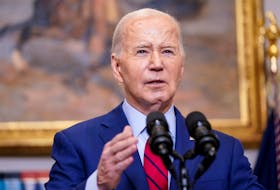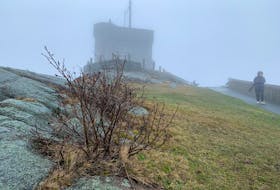Seven years ago I wrote to the Public Utilities Board (PUB) of Newfoundland and Labrador (Feb. 29 2012), using only publicly available data to show that there would be massive cost overruns and more importantly, massive demand deficiency making the Muskrat Falls project a serious mistake.
The point I am making is that the Muskrat Falls inquiry is, in part, chasing irrelevant issues like non-disclosure. I mean irrelevant in sense that we had enough 2012 information to reject Muskrat and didn’t do it.
Although the PUB made reference to my 2012 presentation, it ultimately ignored it. The PUB decision effectively sanctioned a project that should never have been considered.
The inquiry is otherwise engaged to determine what types of institutional checks could possibly be created to resist the hubris of a remarkably popular leader.
On Sept. 18 2018, Brent Flyvbjerg was the first expert giving evidence before the inquiry. Flyvbjerg is a leading expert in megaproject cost overruns and megaproject mistakes. As expected, Flyvbjerg told us that most hydro-projects have massive cost overruns. Nalcor’s lawyer Dan Simmons, had the temerity to emphasize that Canadian cost-overruns are usually lower than elsewhere, as though this insight is supposed to mitigate the Nalcor disaster. It is not unexpected that Nalcor brings in the best of the lawyers. Having done what they did, it’s always helpful to have Simmons minimize what should have been expected of Nalcor. Simmons was quick to point out that Flyvbjerg had absolutely nothing to say specifically about the Muskrat case. Simmons minimized the import of Flyvbjerg’s evidence in terms of damaging his client, Nalcor, since Flyvbjerg couldn’t speak specifically about Muskrat.
Flyvbjerg then said to Peter Ralph, the lawyer representing the Crown, that there needs to be an “outside view” on such projects before they are sanctioned. This is what progressive and forward thinking jurisdictions such as the U.K. and Hong Kong have done as long ago as 2005. If only Newfoundland had established an independent arms-length agency to decide whether massive public utility projects should be sanctioned? Newfoundland could even maybe appoint a former mayor who was a political enemy of the premier to chair such a board, just to make sure we got all of the “outside views” on such a project.
Flyvbjerg was particularly well placed to speak to the wrongness of the Muskrat decision. That is, to assess the pre-2012 data available and to explain to the inquiry how a competent hydro decision-maker would have seen enough serious warning signs, on the demand side, to stop the project. Flyvbjerg was the author of a leading paper in 2008 on demand deficiency: “Public planning of mega-projects: overestimation of demand and underestimation of costs.” Naturally, Flyvbjerg wasn’t asked anything about demand analysis, the primary reason why Muskrat should not have been considered. It is no excuse to say the inquiry is not about assigning blame. Answering the question why the decision went ahead in the face of so many empirical warnings goes straight to the institutional deficiency in Newfoundland. It doesn’t matter than no one is actually held liable.
The inquiry did obtain an expert opinion, by engaging Grant Thornton, which duly scolded Nalcor for its go-ahead on Muskrat. I invite the reader and the Inquiry to compare the similarity of the after-the-fact Grant Thornton report with the before-the-fact Conway report.
The point I am making is that the core Grant Thornton attack on Nalcor is very similar to what I said on Feb. 29, 2012. The really interesting Inquiry question is: why is it that it is only 2018 that experts such as Grant Thornton are able to see the obvious?
Edward Conway, LLB
Ottawa
Related story:








